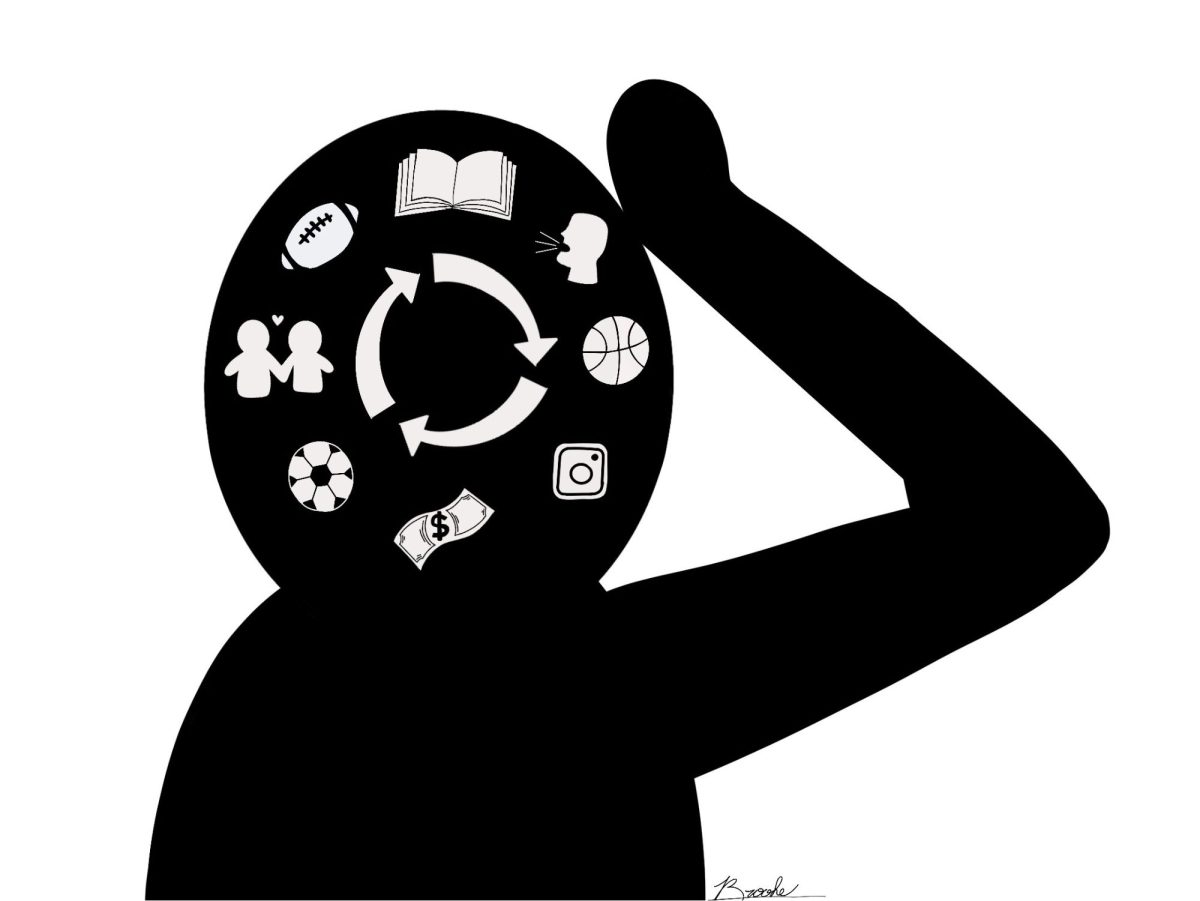As a student with straight A’s who began her high school career with Algebra 1 Honors in 7th grade, fellow classmates have consistently compared themselves to my educational ability. I am probably not the only one who has to deal with this issue.
Because of this, the moment a test or assignment is returned to me, I shove the paper into my binder and wait to look at it until I get home hours later and simply try to ignore the questions that follow. Each time I am asked what my score is or the letter grade I earned, I think to myself “Do you have to compare your score to other people to be satisfied?”
People are so infatuated with what other people do that it extends beyond school into fashion trends, socioeconomic status, and even our modes of transportation. With such extreme attention to what other people are doing with their lives, one could wonder how much time is spent on being a unique individual.
With this in mind, a more reasonable question should be: “Is your score meant to evaluate your skill or the perception of your score by others?” Each individual has different strengths and weaknesses. Someone may be better at math, but another could be superior in the sciences. Comparing scores is a false review in contrast to a direct evaluation between what you scored and what you could have achieved.
“It’s a sign of insecurity when people compare scores. They’re looking for someone to ‘beat’ instead of striving for that ‘ideal’ score,” comments senior Charlene Hinton.
On the contrary, students have probably been comparing themselves to other students rather than comparing themselves to a set rubric/grading system since the concept of a “grade” was introduced.
Let’s be realistic. No college, university, or teacher is going to compare two students solely based on the mere score of an assignment or test. You are evaluated based on your overall potential and how well you were able to reach it during your years in high school.
Furthermore, the scope of the common practice of score-comparing extends far beyond the classroom setting.
Because of social networking, students can update their score immediately to Twitter, Facebook, and other social networking sites. Within minutes, dozens of classmates can read the post and begin to make judgments and inferences about their intellectual level based on the individual who posted about the scores.
These assumptions can indirectly lead to bullying and a drop in self-esteem for the questioned individual. Whether the questioner intended it or not, they have affected the mood and emotion of the asked individual.
For me, it is the thought of word getting around about my scores that has compelled me to keep my SAT score a secret. The fear of being judged based on a simple number is self-bullying within itself.
I, too, am guilty of trying to compare scores. I will admit that I have done so before a few times, but I have learned from it. After really analyzing what my actions were, I realized that I was comparing myself to a different person with different skills, different goals, and a different mindset than my own, and that the only way to truly evaluate my own work was to fully understand the rubric.
What keeps me going despite the constant harassment of comparing scores, is knowing that I did my best and will continue to improve. It doesn’t matter what the other person thinks of my score or how well I did. What truly matters is if I am satisfied with my accomplishments.













